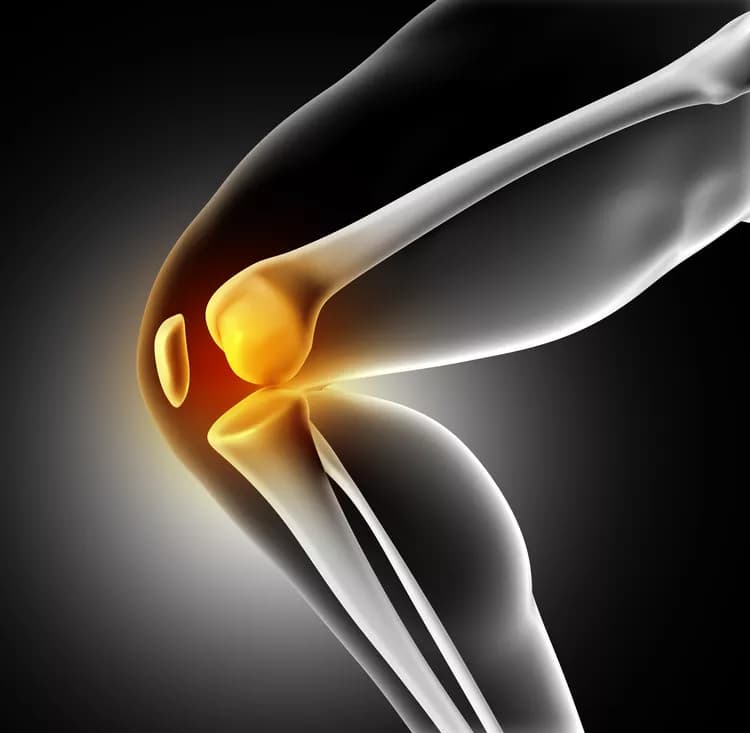
Bariatric Surgery Impacts Joint Replacement Outcomes In Very Obese Patients
A study from Hospital for Special Surgery (HSS) finds that in morbidly obese patients, bariatric surgery performed prior to a total hip or knee replacement can reduce in-hospital and 90-day postoperative complications and improve patient health, but it does not reduce the risk of needing a revision surgery.
The study was presented at the American Academy of Orthopedic Surgeons Annual Meeting on March 14 in San Diego.
"With our data, I think we can say with confidence that bariatric surgery prior to total joint replacement is not a harmful recommendation," said lead study author Alexander McLawhorn, MD, MBA, an assistant attending orthopedic surgeon at Hospital for Special Surgery in New York City. "As an orthopedic surgeon, you are not going to compromise your joint replacement outcome if you advise a morbidly obese patient to seek an opinion from a bariatric surgeon."
Morbid obesity (a body mass index greater than or equal to 40 kg/m2) is associated with poor postoperative outcomes after total knee arthroplasty (TKA) and total hip arthroplasty (THA), including increased risk for revision surgery, postoperative infection, and medical complications. Previous studies have shown that bariatric surgery in patients who are morbidly obese can reduce weight and comorbidities, but clinicians have not known whether the surgery is helpful or harmful to morbidly obese patients undergoing a joint replacement.
Because bariatric surgery has a major impact on the metabolic system, creating a malnourished state, some clinicians have worried that the surgery might have a negative impact on total joint replacement. Others have believed it might improve outcomes by reducing weight and thus the load on a hip or knee joint.
To shed light on the issue, researchers at Hospital for Special Surgery turned to the New York Statewide Planning and Research Cooperative System (SPARCS) database, a comprehensive all payer data reporting system. They identified all morbidly obese patients who had a THA or TKA in New York State between 1997 and 2011. There were 2,636 patients who underwent a total knee replacement and 792 who underwent a total hip replacement after bariatric surgery.
The researchers then used propensity score matching to build control groups of morbidly obese patients receiving total hips and knees without prior or subsequent bariatric surgery. Propensity score matching is a statistical technique that attempts to estimate the effect of a treatment by accounting for the covariates that predict receiving treatment. The propensity score was defined as the conditional probability of a patient undergoing bariatric surgery, given his or her baseline characteristics, including: age, year in which a total hip or total knee replacement was performed, laterality (unilateral versus bilateral surgery), sex, health care payer, region (rural versus urban), and Elixhauser comorbidities.
Statistical analyses showed that bariatric surgery lowered the comorbidity burden of patients prior to total joint replacement (P<0.0001 for TKA and P<0.005 for THA). Morbidly obese patients who had bariatric surgery had lower rates of in-hospital complications for total hip replacement (1.5% vs. 5.3%; P<0.0001) and for total knee replacement (2.7% vs. 3.9%; P=0.021). Put another way, morbidly obese patients who had bariatric surgery were 75% less likely to have in-hospital complications from a total hip replacement and 31% less likely to have in-hospital complications for a total knee replacement. The risk for 90-day postoperative complications was also lower in patients who received bariatric surgery, 14% lower in the THA group (odds ratio [OR], 0.86; P=0.041) and 61% lower in the TKA group (OR, 39%; P=0.0019). Bariatric surgery did not lower the risk of having a revision surgery or the risk for a hip dislocation.
Other healthcare claims database studies have been conducted looking at joint replacement in morbidly obese patients, but results have been inconsistent, most likely due to selection bias. "When you look at the design of the other studies, the single biggest flaw is they don't try to account for the very real selection bias that exists for morbidly obese patients who received bariatric surgery versus those that do not," said Dr. McLawhorn. "The patient population that is indicated for bariatric surgery is different than the universe of patients who are just morbidly obese. They tend to have a much higher comorbidity burden, and they tend to be sicker and heavier. We accounted for this selection bias in our study."
The researchers say a prospective trial examining the impact of bariatric surgery on a TKA in morbidly obese patients is in the works. "Orthopedic surgeons are seeing a lot of these patients who are morbidly obese and have hip and knee arthritis," said Dr. McLawhorn. "The question is how do we optimize these patients who have a real problem with their hip or knee and the comorbid condition of obesity, so that they can achieve maximal benefit from their joint replacement."
Materials provided by Hospital for Special Surgery. Note: Content may be edited for style and length.
Disclaimer: DoveMed is not responsible for the accuracy of the adapted version of news releases posted to DoveMed by contributing universities and institutions.
Related Articles
Test Your Knowledge
Asked by users
Related Centers
Related Specialties
Related Physicians
Related Procedures
Related Resources
Join DoveHubs
and connect with fellow professionals

0 Comments
Please log in to post a comment.